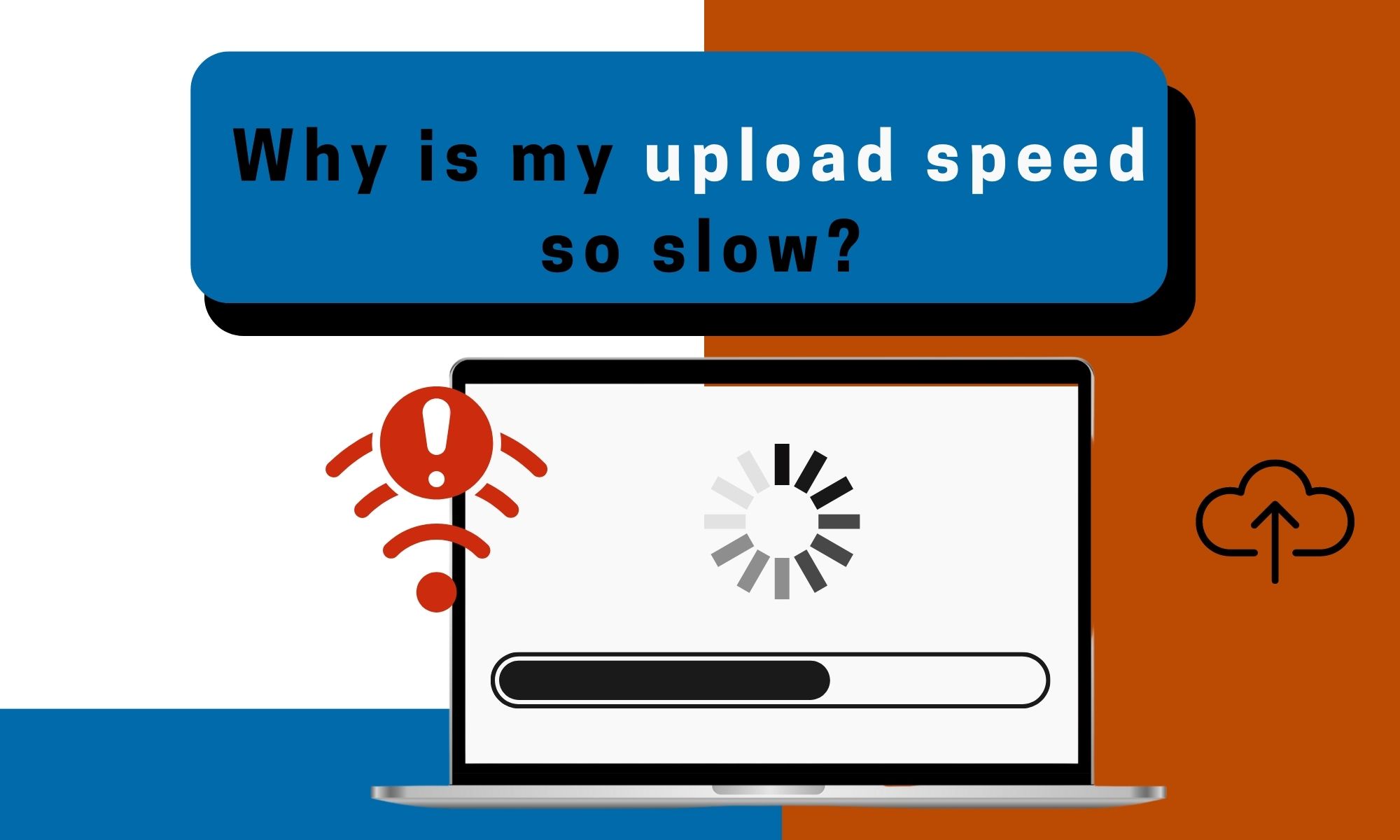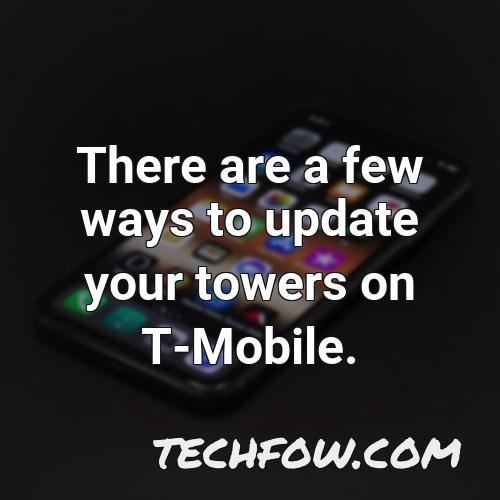Who Else Wants Tips About Why Is My LTE So Slow

Solve Your Slow Upload Speed Mystery 6 Tips Inside
Why Is My LTE So Slow? A Deep Dive (and a Few Laughs)
1. The Great LTE Mystery
Ever stared at your phone, waiting for a webpage to load, feeling like you're back in the dial-up era? You're not alone. "Why is my LTE so slow" is a question millions of us ask daily. Let's face it, in today's world, a sluggish internet connection can feel like a personal affront. It's like showing up to a sword fight with a butter knife.
But don't despair! There's usually a perfectly logical (and often fixable) reason why your LTE is dragging its digital feet. Think of this as a detective story, and we're the sleuths on the case. We'll investigate the usual suspects, uncover the hidden culprits, and hopefully, restore your internet speed to its former glory.
Before we dive into the technical jargon, lets acknowledge the elephant in the room: sometimes, it's just your provider. But we'll get to that. For now, let's assume the problem lies somewhere between your phone and the cell tower.
So, buckle up, grab your phone (ironically, you'll need it), and lets get to the bottom of this infuriatingly slow LTE situation. We're about to embark on a journey of signal strength, network congestion, and maybe even a rogue app or two.

Kenya Why Is My LTE Not Working Carlcare
Congestion City
2. Understanding Network Overload
Imagine a highway during rush hour. That's your LTE network when everyone in your area is trying to stream videos, download files, or just scroll through social media at the same time. Your data is essentially stuck in a traffic jam, desperately trying to reach its destination. This is known as network congestion, and it's a very common reason for slow LTE speeds.
Think about it: lunch breaks at the office, concerts, sporting events — these are all prime times for network congestion. Your phone is competing with hundreds, even thousands, of other devices for bandwidth. It's a data free-for-all, and unfortunately, you might be losing the battle.
What can you do about it? Well, you can't exactly control when everyone else decides to use their phones. However, you can try switching to Wi-Fi if it's available. Or, if you're really desperate, try using your phone during off-peak hours (like the middle of the night). Your LTE connection will thank you.
Another sneaky aspect of congestion is that some providers intentionally throttle bandwidth during peak times to manage the overall network load. It's like a digital dictatorship! Check your service agreement for details on throttling policies. You might find some surprising information.

Signal Strength Shenanigans
3. Decoding the Bars on Your Phone
Those little bars on your phone that indicate signal strength? They're not always the most accurate representation of your LTE connection. But generally, fewer bars mean a weaker signal, which translates to slower speeds. It's like trying to hear someone whispering from across a crowded room; the message just doesn't come through clearly.
Several things can affect your signal strength. Distance from the cell tower is a big one. The further you are, the weaker the signal. Buildings, trees, and even weather can also interfere with your connection. Think of them as digital obstacles, blocking your phone's access to the internet.
What can you do to improve your signal? Try moving to a different location. Go outside, stand near a window, or climb to higher ground (safely, of course!). Sometimes, just a few feet can make a world of difference. You might also consider investing in a cell phone signal booster, especially if you live in a rural area with weak coverage.
And here's a fun fact: holding your phone a certain way can actually affect your signal. Remember "antennagate" with the iPhone 4? While modern phones are better designed, it's still possible to inadvertently block the antenna with your hand. Try experimenting with different grips to see if it makes a difference. You never know!

The App-ocalypse
4. Unmasking the Data Hogs
Did you know that some apps can secretly hog your bandwidth in the background? It's true! They might be downloading updates, syncing data, or even just displaying ads. All of this activity can eat into your LTE connection and slow things down for everything else.
To identify the culprits, check your phone's data usage settings. This will show you which apps are using the most data. You might be surprised to discover that some apps are consuming far more than you realize. It's like finding out your neighbor has been secretly siphoning water from your garden hose!
Once you've identified the data hogs, you can take action. You can restrict their background data usage, disable automatic updates, or even uninstall them altogether. It's like Marie Kondo-ing your phone, getting rid of anything that doesn't bring you joy (or, in this case, a fast internet connection).
Also, beware of apps that are known for being data-intensive, such as streaming services and social media apps. These apps can quickly devour your data allowance, especially if you're streaming high-definition video. Consider lowering the video quality or downloading content for offline viewing to save data and improve your LTE speed.

Why Is My Laptop So Slow? Fabalabse
Phone Problems and Provider Puzzles
5. Troubleshooting Your Device and Network
Sometimes, the problem isn't with the network or the apps, but with your phone itself. An outdated operating system, a corrupted file, or even a simple glitch can cause your LTE connection to slow down. It's like having a tiny gremlin living inside your phone, sabotaging your internet speed.
First, try restarting your phone. It sounds simple, but it can often fix minor software issues. It's like giving your phone a quick reboot to clear its head. If that doesn't work, check for software updates. Keeping your operating system up-to-date can improve performance and fix bugs that might be affecting your LTE connection.
If the problem persists, consider resetting your network settings. This will erase your saved Wi-Fi passwords and Bluetooth connections, but it can also resolve network-related issues. It's like giving your phone a fresh start with its network settings.
And finally, if you've tried everything else and your LTE is still slow, it might be time to contact your mobile provider. There could be an issue with the network in your area, or your account might be experiencing some technical difficulties. They might be able to offer a solution or, at the very least, explain what's going on. Be polite, explain what troubleshooting steps youve already taken, and hope for the best!

Why Is My 4G Lte So Slow At&T 2021
FAQ
6. Your Burning Questions Answered
Still scratching your head? Let's tackle some frequently asked questions about slow LTE speeds.
Q: Why is my LTE so slow only at certain times of day?
A: That's likely due to network congestion. During peak hours, when more people are using their phones, the network gets overloaded, and speeds slow down. Think of it like rush hour on the internet highway.
Q: Can my phone's age affect my LTE speed?
A: Yes, it can. Older phones may not support the latest LTE technologies, or they may have weaker antennas. Upgrading to a newer phone can sometimes significantly improve your LTE speed.
Q: Is there an app that can speed up my LTE connection?
A: While some apps claim to boost your LTE speed, most of them are ineffective. They often just clear your cache or close background apps, which you can do yourself. There's no magic app that can magically make your LTE faster. It would be nice, though, wouldn't it?
Q: I have unlimited data, so why is my LTE still slow?
A: Many "unlimited" data plans have speed throttling policies. After you use a certain amount of data, your provider may slow down your speeds to manage network congestion. Check your plan details for more information.